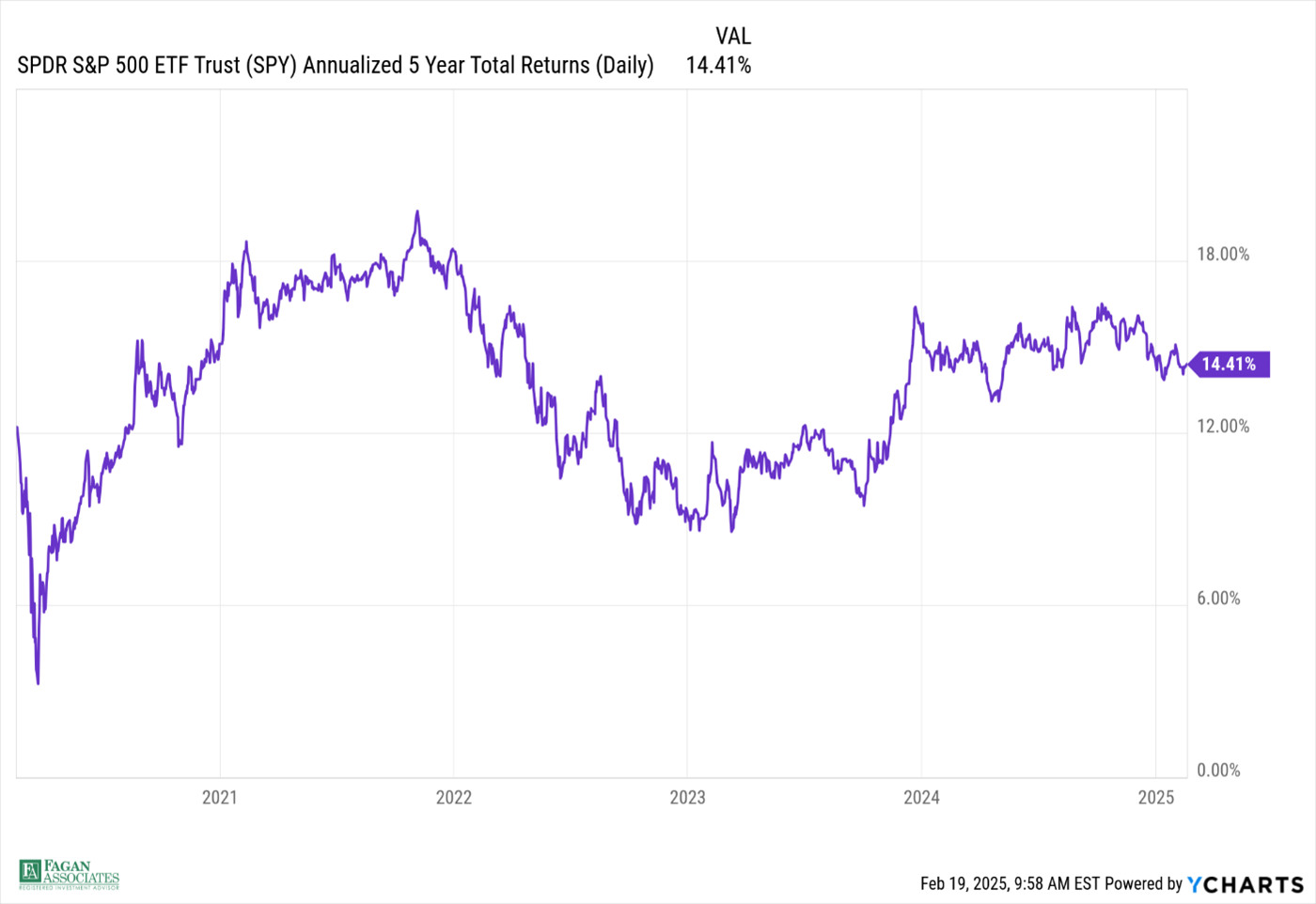Five years ago today (February 19, 2020) the S&P 500closed at a record high before plunging 33.92% over the ensuing twenty-fivetrading days before bottoming on March 23, 2020. As we are all aware, the catalyst for such arapid decline was the onset of the COVID pandemic. Investors certainly could not haveanticipated the magnitude of the drop or for that matter the ensuing rally thaterased all those losses by the end of that same summer. In fact, as is illustrated by the chartbelow, the S&P 500 ETF (SPY) has averaged 14.41% per year over the pastfive years and in doing so reinforced some time-tested lessons for allinvestors, including those of us at Fagan Associates.

Seasoned investors keep in mind the following
- Maintain a perspective in line with your objectives, especially during periods of heightened volatility
- Portfolios that are diversified can reduce risk
- Emotions, like hope, fear and greed are not investment strategies. Keep your emotions and behavioral biases in check during bull as well as bear markets
- Downturns bring opportunity. Remember, buy high and sell low
- Don’t stray from your plan. If you need to reduce risk to sleep at night, do so incrementally.
“This presentation is not an offer or solicitation to buy or sell securities. The information contained in this presentation has been compiled from third party sources and is believed to be reliable, but its accuracy is not guaranteed and should not be relied upon in any way, whatsoever. Fagan portfolio characteristics and holdings are subject to change at any time and are based on a representative portfolio. Holdings and portfolio characteristics of individual client portfolios may differ, sometimes significantly, from those shown. This information does not constitute, and should not be construed as, investment advice or recommendations with respect to the securities listed.
Additional information including management fees and expenses is provided on our Form ADV Part 2. The actual return and value of an account fluctuate and, at any time, the account may be worth more or less than the amount invested. Bond Investments are affected by interest rate changes and the credit-worthiness of the issues held in the portfolio. A rise in interest rates will cause a decrease in the value of fixed income positions. Past performance results are not indicative of future results.”


